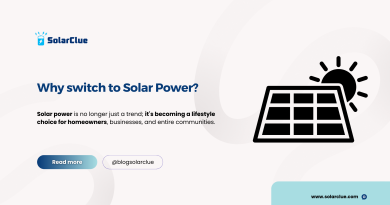What Are The Two Types Of Solar Panels?
Solar energy has become an essential part of our quest for sustainable and renewable energy sources. Two primary types of solar panels dominate the market: Photovoltaic (PV) and Solar Thermal panels. Understanding their differences is crucial for choosing the right type for specific needs.
Table of Contents
Photovoltaic (PV) Solar Panels
Operating Principles
Photovoltaic (PV) panels generate electricity by converting sunlight directly into electricity using semiconductor materials, typically silicon. When sunlight hits the solar cells, it excites electrons, creating an electric current.
Key Functions
- Electricity Generation: PV panels are primarily used to generate electricity for residential, commercial, and industrial use.
- Grid Integration: They can be connected to the electrical grid or used in off-grid systems with batteries.
- Scalability: PV systems can range from small rooftop installations to large solar farms.
Applications
- Residential: Rooftop PV panels provide electricity for homes, reducing dependence on grid power and lowering electricity bills.
- Commercial: Businesses use PV systems to power operations, often benefiting from incentives and tax breaks.
- Utility-Scale: Large solar farms generate substantial amounts of electricity, contributing significantly to the power grid.
Solar Thermal Panels
Operating Principles
Solar thermal panels capture and convert sunlight into heat. This heat is then used to warm water or air for residential, commercial, or industrial purposes. They typically use a heat transfer fluid, such as water or antifreeze, that absorbs solar heat and transfers it to a storage system.
Key Functions
- Water Heating: Solar thermal panels are commonly used for heating water in homes and businesses.
- Space Heating: They can provide heating for buildings, reducing the need for conventional heating methods.
- Industrial Processes: Solar thermal energy can be used in various industrial processes requiring heat.
Applications
- Residential: Solar thermal systems heat water for domestic use, significantly reducing energy costs.
- Commercial: Businesses use solar thermal systems for hot water and space heating, improving energy efficiency.
- Industrial: Industries employ solar thermal energy for processes like pasteurization, sterilization, and drying.
Comparison Table: PV vs. Solar Thermal
| Feature | Photovoltaic (PV) Panels | Solar Thermal Panels |
|---|---|---|
| Energy Conversion | Sunlight to electricity | Sunlight to heat |
| Key Material | Semiconductor (silicon) | Absorber plate, heat transfer fluid |
| Primary Use | Electricity generation | Water and space heating |
| Applications | Residential, commercial, utility | Residential, commercial, industrial |
| Grid Integration | Yes | No |
| Efficiency | 15-20% | 70-90% |
| Cost | Higher initial investment | Lower initial investment |
| Maintenance | Low to moderate | Low |
Conclusion
Choosing between Photovoltaic (PV) and Solar Thermal panels depends on your specific energy needs. PV panels are ideal for generating electricity, offering versatility and scalability. In contrast, solar thermal panels excel in heating applications, providing a more efficient solution for water and space heating. Understanding the key differences and applications of each type will help you make an informed decision that best suits your energy requirements.
Here at SolarClue®, we offer a smart, practical, and “beautiful” solution. You will be answered for all the questions related to Solar.
We provide all kinds of brands that are the Best Solar panels in India.
If you are the one who is planning for the solar power system. Don’t hesitate to contact our team!
Looking forward to empowering you with solar energy, just like hundreds of our other clients!
Frequently Asked Questions (FAQ)
Q1: Which type of solar panel is more efficient?
Solar thermal panels are generally more efficient (70-90%) at converting sunlight into usable energy compared to PV panels (15-20%).
Q2: Can PV panels be used for heating purposes?
PV panels primarily generate electricity. However, the electricity produced can power electric heaters, indirectly providing heating.
Q3: Are solar thermal panels suitable for all climates?
Solar thermal panels are most effective in sunny climates but can be designed to work efficiently in colder regions with proper insulation and antifreeze solutions.
Q4: What is the lifespan of PV and solar thermal panels?
Both types of panels typically have a lifespan of 20-25 years, with regular maintenance ensuring optimal performance.
Q5: Which system is more cost-effective?
The cost-effectiveness depends on the specific application. PV panels have higher initial costs but can generate electricity for a variety of uses, while solar thermal systems are typically cheaper to install and operate for heating purposes.




